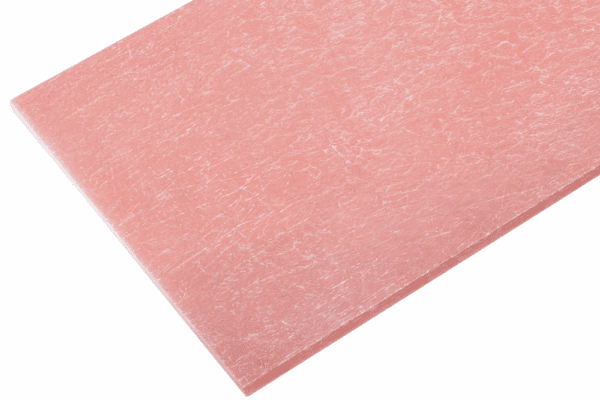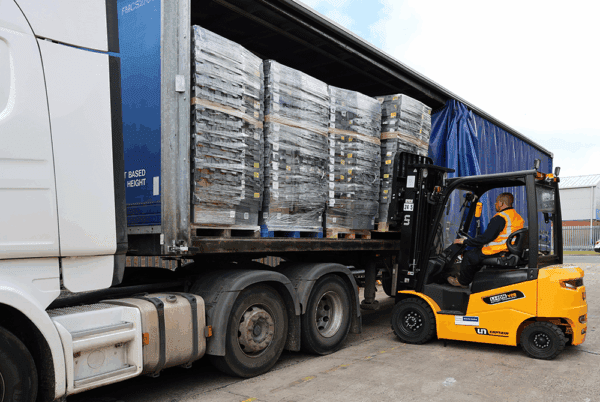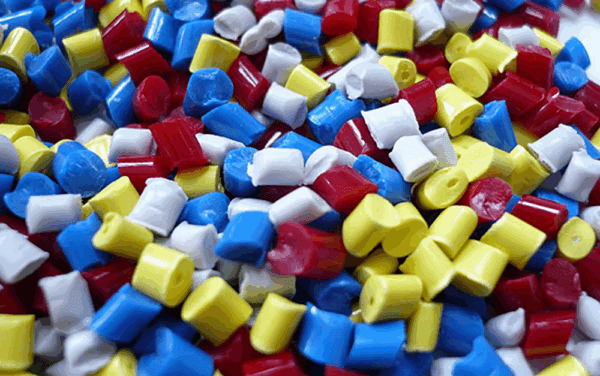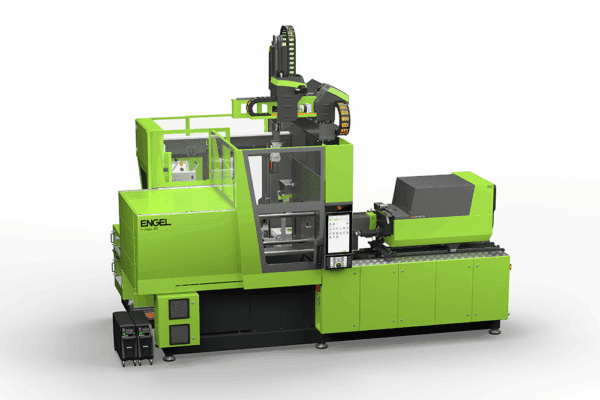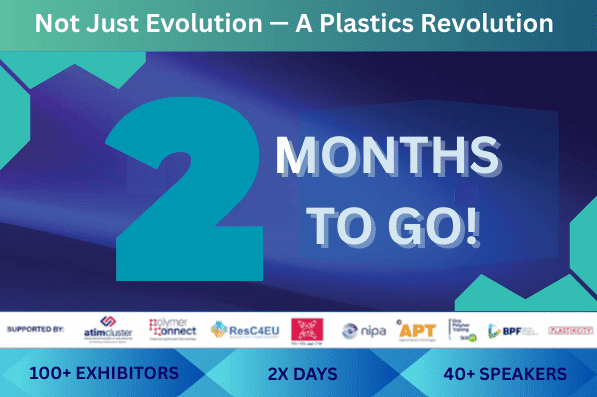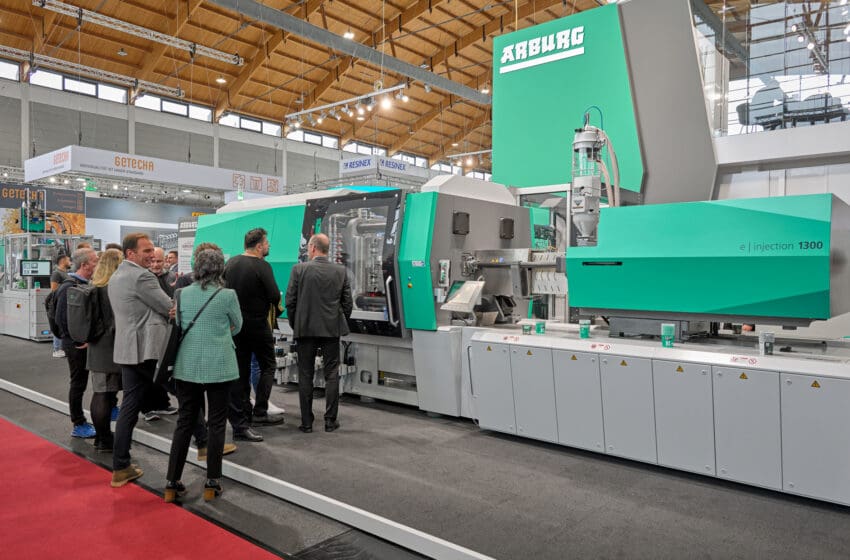
Allrounder 720 A: Efficient Injection Compressing Moulding of IML Thin-Wall Cups
|
Getting your Trinity Audio player ready...
|
Arburg (Stand 13A13) will be demonstrating how injection moulding in conjunction with in-mould labelling (IML) can be used to manufacture packaging products in a remarkably reliable and energy-efficient manner, using up to 20 per cent less material.
At K 2025, a thin-walled round cup with a tamper-evident closure will be produced for the first time – featuring geometry that cannot be achieved in thermoforming. A high-performance electric Allrounder 720 A “Ultimate” has been specifically optimised for this application in terms of performance, energy efficiency and precision.
The electric Allrounder 720 A “Ultimate” with a clamping force of 3,200 kN and a size 1300 injection unit can achieve remarkably high injection volumes and injection speeds of up to 400 millimetres per second. In the application being exhibited, great importance was attached to a material-saving component design and energy efficiency.
Injection compressing moulding saves material and reduces clamping force
Injection compressing moulding offers several advantages at once and is more resource-efficient than classic injection moulding: It allows significantly thinner wall thicknesses to be achieved; less injection pressure is required and tool temperatures of 20 instead of 12 degrees Celsius can be used. Improvements to this process have yielded energy savings of up to 30 per cent, accompanied by a significant reduction in component weight.
In contrast to thermoforming, complex geometries can also be created. Thanks to the optimum design of the machine and peripherals, Arburg’s application and process experts have succeeded in reducing the clamping force required for the exhibit at K 2025 by around 20 per cent from 2,900 to 2,300 kN. Together with savings in relation to machine size and purchase cost, footprint, wear and connected load.
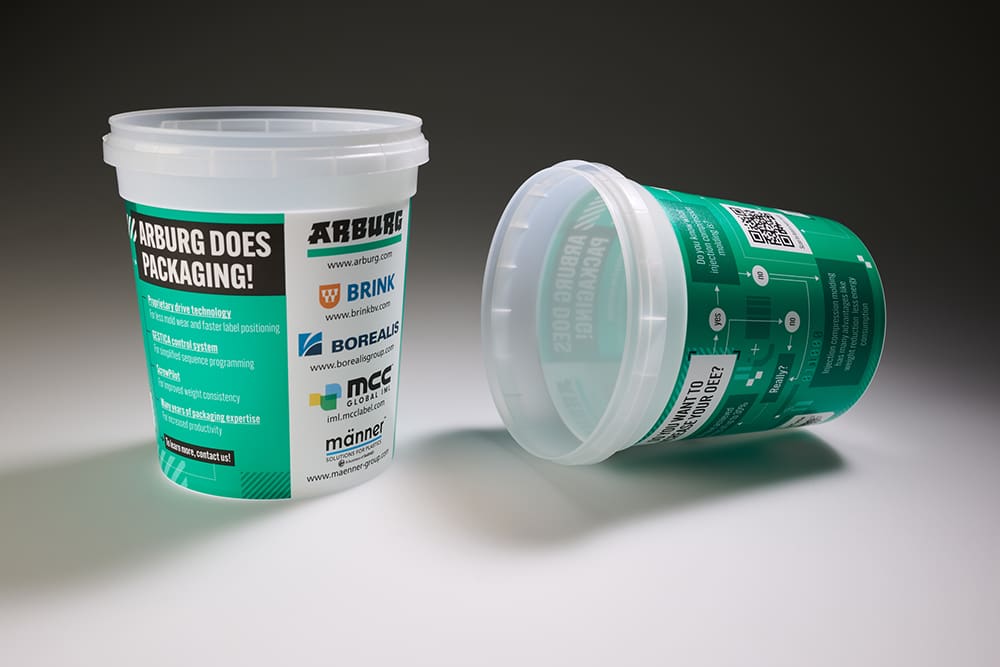
Four thin-walled IML cups in just 3.5 seconds
The electric Allrounder 720 A “Ultimate” uses a 4-cavity mould from Brink to produce IML cups weighing 12.4 grams, each holding 400 millilitres and featuring a tamper-evident closure. The wall thickness measures just 0.37 millimetres and the cycle time is around 3.95 seconds. The high injection speed required are provided by precise servo motors from the Arburg sister company AMKmotion.
A side-entry robot from Brink is also integrated into the production cell. This inserts the labels then goes on to remove the finished cups before stacking them on a conveyor belt. The special Next Cycle label can be separated completely from the cup during the recycling process, enabling the PP product to be recycled by type after use.
Process reliability to high part quality
For process monitoring, the tool is equipped with three displacement and embossing sensors. These are positioned in the main plane, in the embossing plane and on the needle gate nozzle. This makes it possible to fine-tune the chronological sequence of the stamping process from injection to tool closing to control of the needle-type shut-off nozzle. Smart assistance and pilot functions in the Gestica, such as the “aXw Control ScrewPilot” compensate for deviations in the filling process. This ensures stable mould filling, process reliability and consistently high component quality.
Read more news from ARBURG here.
ARBURG
01926 457000
Email
Website

